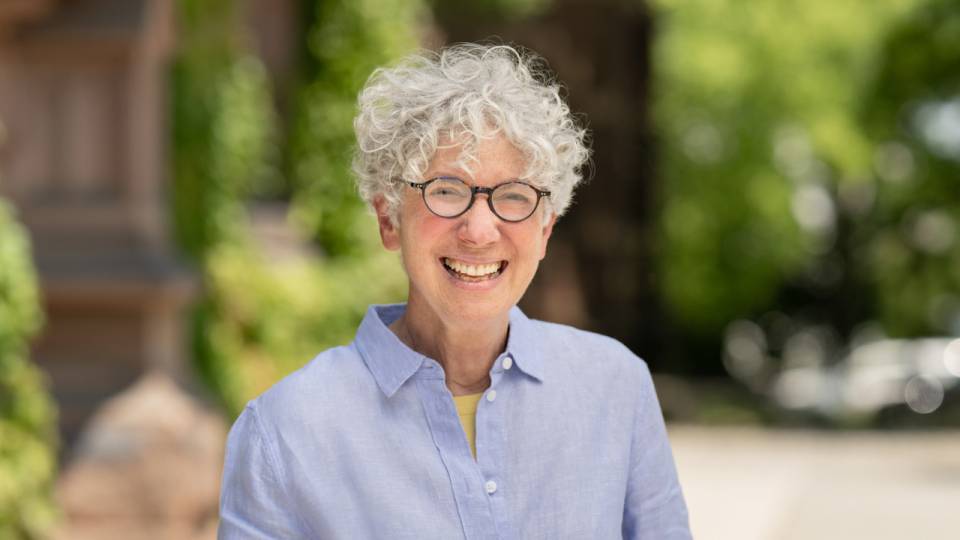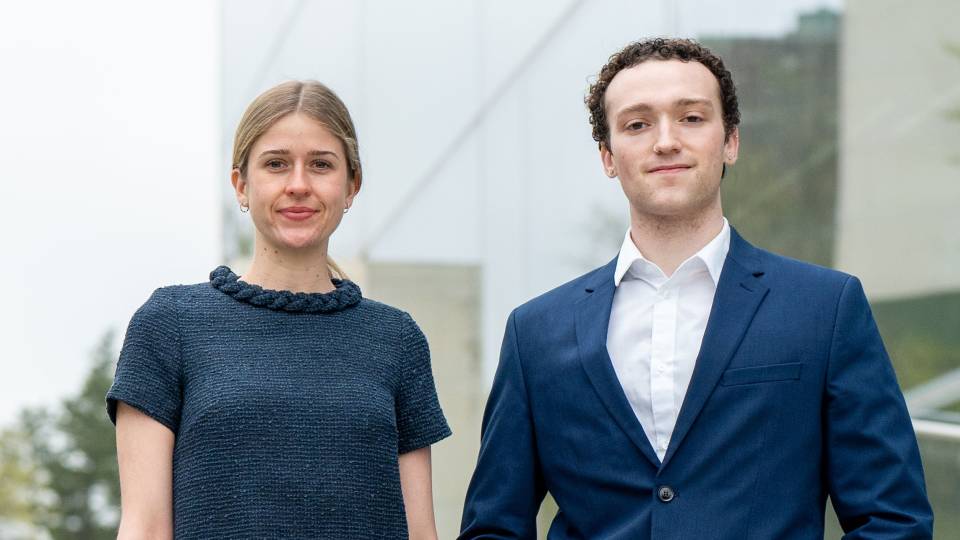Michael D. Gordin
Michael D. Gordin, the Rosengarten Professor of Modern and Contemporary History and an expert on the history of science, has been named Princeton’s next dean of the college. Gordin has been a Princeton faculty member for over 20 years, with leadership roles including director of the Society of Fellows in the Liberal Arts, inaugural director of the Fung Global Fellows Program, and director of the Program in Russian, East European and Eurasian Studies.
Gordin’s appointment will take effect July 1. He will succeed Jill Dolan, who previously announced plans to conclude her service as dean at the end of this academic year.
The dean of the college is the senior officer responsible for the undergraduate curriculum, residential college system, and other services and resources designed to promote the intellectual development of undergraduates. The dean of the college also oversees the admission and financial aid offices.
"As one of the world's leading historians of science, Michael Gordin combines scholarly distinction, a deep commitment to undergraduate teaching, and an appreciation for liberal arts education that transcends disciplinary boundaries and reaches every field at this University,” President Christopher L. Eisgruber said. “He is just the right person to lead the undergraduate college at Princeton, and I look forward to working with him to make an outstanding educational program even better."
Provost Jennifer Rexford, to whom Gordin will report, led the search committee.
"Michael impressed the committee with his infectious curiosity and compelling vision for what a Princeton undergraduate education can and should be, both within and across disciplines,” said Rexford, who is also the Gordon Y.S. Wu Professor in Engineering. “I so look forward to working with him as dean."
As dean of the college, Gordin said he will be excited to support the continued excellence of Princeton’s undergraduate curriculum, as well as to consider new ways to innovate teaching and learning.
“Princeton students are fascinating people, full of new ideas and a hunger to learn and to apply their learning to reshaping their lives and the world,” Gordin said. “As the undergraduate student body has expanded, the University as a whole has been transformed in exciting ways. I want to be a part of continuing the work underway to build the future of Princeton we already see happening around us.”
Gordin said he sees the dean’s role as enabling undergraduates to thrive in the Princeton curriculum and beyond. He also acknowledged recent challenges experienced by students at Princeton and across the country.
“There are many challenges that face college students, including mental health and the aftereffects of the COVID lockdowns on learning,” Gordin said. “Others are more specific to Princeton, like keeping the parts of our pedagogical approach — focused, individualized learning that emphasizes original research and creativity — as the University continues to evolve. The dean of the college’s role is to develop solutions to those challenges, preserving the parts we most value while adapting to where our students now are, and where they will be in the future.”
Gordin said he has already gained insight into the work of the dean of the college while recently serving as co-chair of the University’s Middle States Re-Accreditation Steering Committee. As part of its process, the group examined progress on strategic framework goals, including ensuring that students from all social, economic and academic backgrounds are thriving academically, continuing to expand the student body to add 500 more undergraduates, and responding to technology’s impact on research and education.
Gordin joined Princeton’s Department of History in 2003. His scholarship focuses on the history of the modern physical sciences and on Russian, European and American history.
He is the author of a number of books, including “Scientific Babel: How Science Was Done Before and After Global English,” “On the Fringe: Where Science Meets Pseudoscience,” “Einstein in Bohemia,” “A Well-Ordered Thing: Dmitrii Mendeleev and the Shadow of the Periodic Table,” and “Five Days in August: How World War II Became a Nuclear War.” Gordin said several of his books grew out of subjects examined in his Princeton classes.
He was named a Guggenheim Fellow and a National Endowment for the Humanities Fellow in 2011. In 2019, he was elected as a member of the Leopoldina, the National Academy of Sciences of Germany.
Gordin’s committee service also includes the editorial board and board of trustees of Princeton University Press and the executive committees of the Council on Science and Technology, the Princeton Institute for International and Regional Studies, the Program in Contemporary European Politics and Society, and the Program in Translation and Intercultural Communications, among others.
Gordin earned his undergraduate and doctoral degrees from Harvard University. After earning his Ph.D., he spent a term as a fellow at the Harvard Society of Fellows.




